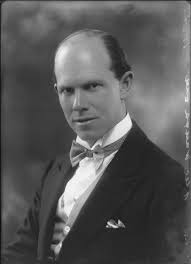the origins of the cocktail party
- Mar 26, 2023
- 3 min read
“It is my belief and boast that I invented the London cocktail party—in April, 1924.” Thus declared Alec Waugh in an article for Esquire in 1974.
Waugh, the brother of novelist and chronicler of the Bright Young Things Evelyn, claims he came up with the idea when looking for a way to kill time on a winter evening that didn’t involve that most British of beverages, tea. He raised the topic one day with friends.
“What one needs,” I said, “is some kind of party that starts at half-past five, that lasts ninety minutes, at which alcohol is served but not much food”.
The friends, known to be great party givers, were happy to oblige and threw open their doors but disappointingly only one person turned up. The party was a dismal failure but Waugh, convinced he was onto a good thing, refused to give up on the idea. In the autumn of the following year he concocted a deception which involved inviting friends to tea at five o’clock. Once they’d consumed the conventional teatime fare - crumpets, scones and so on - he produced a beaker of daiquiris. He himself wasn’t very familiar with cocktails at the time and the drinks were mixed by an American friend. They proved both potent and delicious and soon lots of people were giving cocktail parties.
Like his brother, Alec was a writer, so perhaps we should take his claim with a pinch of salt. The cocktail party had certainly been a social fixture in America several years previously when wealthy Kentucky socialist Clara Bell Walsh invited 59 of her closest friends over for drinks one Sunday afternoon.
The Tacoma Times reported in April 1917: “Positively the newest stunt in society is the giving of “cocktail parties.”. The cocktail party is a Sunday matinee affair which originated here. Mrs Walsh introduced it last Sunday, with the first cocktail party in society’s history.’
Still, it obviously hadn’t caught on in Britain by the time Alec Waugh conned his friends into quaffing daiquiris before dinner but it soon did. The interwar years are synonymous with the wild parties and excessive drinking of the Bright Young Things, that hedonistic generation who blazed a trail through post-war London. Reacting to the social upheavals that emerged in the wake of the First World War, they railed against society, expressing themselves through clothing, music, sexuality and, of course, drinking. Elizabeth Ponsonby, the original flapper It Girl reportedly ‘lived on brandy cocktails and salted nuts for years’. From lavish balls and the bars of London’s best hotels to late-night clubs and private parties, they spearheaded a booming cocktail culture. Their exploits can be found brilliantly satirised in the pages of Evelyn Waugh and P. G. Wodehouse.
The rise of the cocktail’s popularity in Britain was also fuelled by an influx of American bartenders looking for somewhere to ply their trade during Prohibition and bringing with them new ideas. Cocktail legends such as the Englishman Harry Craddock, author of the seminal Savoy Cocktail Book, began to set down their recipes in print, enabling private hosts to impress their guests with the latest fashionable concoction.
If you’d like to try some of the classic cocktails enjoyed by the Bright Young Things, we recommend grabbing yourself a copy of Cecil Beaton’s Cocktail Book. Beaton was celebrated for his photographs of the glittering social set and this book was published by The National Portrait Gallery to coincide with an exhibition of his work. Developed with Claridge’s bar manager Denis Broci, it includes a fabulous selection of recipes, including some of our favourite Golden Age cocktails.

The Sidecar
This is Christen's favourite although it's a close-run thing with the Aviation.
Ingredients
40ml Cognac
20ml Cointreau
25ml lemon juice
10ml sugar syrup
Method
Shake all the ingredients and fine strains into a frozen glass. Garnish with a lemon twist.
White Lady
This is Helen's choice (and reputedly Alfred Hitchcock's favourite cocktail).
Ingredients
40ml Plymouth Gin
15ml Cointreau
25ml lemon juice
25ml egg white
10ml sugar syrup
Method
Shake all ingredients and fine strain into a frozen glass. Garnish with a lemon twist.
We're also very keen on French 75s, Manhattans, Daiquiris in all their incarnations and, of course, the classic Martini.











Comments